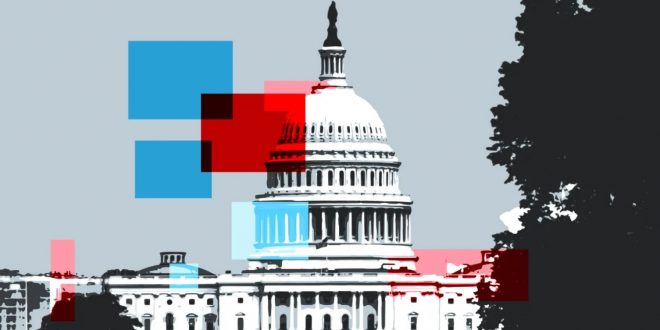CEOs of major social platforms are scheduled to testify before Congress on Wednesday, addressing concerns that their companies have not adequately safeguarded children and teenagers on the internet.
The hearing, scheduled to commence at 10 a.m. ET, is the most recent addition to a series of congressional tech hearings that have spanned several years. Unfortunately, these hearings have yielded minimal results in terms of implementing new regulations or policy changes.
The Senate Judiciary Committee will be hosting the upcoming hearing, which is significant primarily for requiring five chief executives to travel across the country and respond to a series of inquiries from lawmakers. Technology companies frequently appease Congress by sending their legal counsel or a policy executive to hearings. However, the upcoming hearing will be different as it will showcase a panel of CEOs. Among them are Mark Zuckerberg from Meta, Linda Yaccarino, the CEO of X (formerly Twitter), Shou Chew from TikTok, Jason Citron from Discord, and Evan Spiegel from Snap. Only Zuckerberg and Chew willingly appeared at the hearing without being legally compelled to do so.
Although Zuckerberg is experienced in participating in these frequently long and unfocused efforts to hold technology companies responsible, the televised hearing on Wednesday will be a new experience for Yaccarino, Spiegel, and Citron. Snap and X have previously delegated other executives, including their former chief executive, to this role. However, Discord, a chat app initially created for gamers, is now stepping into the spotlight for the first time. All three newcomers have the potential to create intriguing, unscripted moments, especially Yaccarino. The executive Elon Musk chose to lead X has recently appeared in interviews with a demeanor that stands in stark contrast to that of her media-savvy colleagues like Zuckerberg and Chew. She has appeared flustered and combative, presenting a distinct departure from the poised and polished image often seen in similar positions.
Discord, a widely used application among the younger generation, is an unexpected mention in these hearings. A report from NBC News last year that examined the issue of sextortion and child sexual abuse material (CSAM) on the chat platform most likely had an impact on the committee’s decision to include Discord. The company’s presence is noteworthy, especially considering the lack of other well-known algorithm-powered social networks such as YouTube, which is often inexplicably absent from these events, and the absence of Amazon-owned livestreaming platform Twitch.
The upcoming hearing on Wednesday, titled “Big Tech and the Online Child Sexual Exploitation Crisis,” will delve into a wide range of topics beyond its seemingly limited focus. Lawmakers are expected to thoroughly examine various concerns regarding the failure of social platforms to adequately protect young users from harmful content. These concerns encompass both recent incidents and ongoing issues. According to the WSJ, there are serious concerns about Instagram’s role in connecting sexual predators with vendors who advertise CSAM. Additionally, a recent investigation by NBC News uncovered numerous instances of grooming, kidnapping, and other forms of sexual exploitation in recent years that Discord facilitated.
In addition to addressing the issue of child protection from sexual predators, lawmakers are likely to raise questions with the five tech CEOs regarding other online safety concerns. These concerns include the presence of fentanyl sellers on Snapchat, the growing problem of white supremacist extremism on Platform X, and the prevalence of self-harm and suicide content on TikTok. Considering X’s recent failure to prevent an explosion of explicit AI-generated Taylor Swift imagery and their inadequate response, it is likely that there will be inquiries about Taylor Swift as well.
Tech companies are expected to present counterarguments, highlighting platform and policy modifications that aim to enhance the safety of these apps. Some of these changes may be primarily intended to appease Congress before the hearing. Meta recently implemented an update to Instagram and Facebook, which now restricts teenagers from receiving direct messages from unfamiliar users. Similar to other updates implemented by companies such as Meta, it prompts the inquiry as to why these protective measures are consistently being introduced after the fact, rather than being integrated into the product prior to its availability to young users.
KOSA has a significant presence
During this hearing, the focus is on the Kids Online Safety Act (KOSA), a contentious piece of legislation aimed at compelling tech platforms to implement further safeguards to protect children from harmful online content. Despite some revisions, critics of the bill warn that KOSA would extensively regulate the internet, support censorship, and put young LGBTQ individuals at risk. Several proponents of the bill, including co-sponsor Sen. Marsha Blackburn, have expressed their belief that KOSA should be utilized to remove transgender content aimed at young individuals from the internet.
The LGBTQ advocacy group GLAAD shared its concerns about the hearing and related legislation in a statement provided to. They emphasized the importance of lawmakers carefully crafting proposed solutions to prevent any negative impact on the queer community.
“GLAAD stated that during the US Senate Judiciary Committee’s hearing, lawmakers who are against LGBTQ rights are expected to make unfounded claims by trying to draw false comparisons between age-appropriate LGBTQ resources and inappropriate material.” “Parents and youth require effective measures to tackle the detrimental business practices of big tech platforms. However, it is important to distinguish age-appropriate information about LGBTQ individuals from such content.”
The legislation has faced opposition from the ACLU, the EFF, and other groups who are concerned about its implications for encryption. Concerns have been raised regarding the Children and Teens’ Online Privacy Protection Act (now referred to as “COPPA 2.0”), the STOP CSAM Act, and the EARN IT Act, which are bills aimed at safeguarding children on the internet.
Not all supporters of the bill are conservative. KOSA currently enjoys support from both sides of the aisle, and the concerns raised by its critics have not yet resonated with the numerous Democratic lawmakers who support it. The bill has garnered support from reputable organizations dedicated to ensuring children’s safety on the internet, such as the American Academy of Pediatrics, the National Center on Sexual Exploitation, and Fairplay, a nonprofit organization with a focus on safeguarding children online.
“KOSA serves as a necessary remedy to the detrimental business practices of social media platforms. These platforms prioritize maximizing user engagement at all costs, even if it means leading young individuals into harmful situations and enabling their exploitation and abuse,” stated Josh Golin, executive director of Fairplay, as reported by . Fairplay has formed a coalition of parents who have tragically lost children due to cyberbullying, drug-related incidents on social media, and other online dangers.
Last week, KOSA gained an unexpected supporter from one of the companies targeted by the bill. Last week, Snap made a significant decision by aligning itself with KOSA. This strategic move appears to be aimed at gaining favor with regulators who have the power to influence the future of both Snap and its main competitor, TikTok. Among young people, TikTok currently holds the majority of screen time.
Snap’s decision to oppose its fellow tech companies and even its own industry group on KOSA is comparable to Meta, formerly known as Facebook, who took a similar action in 2018 by endorsing a contentious set of laws called FOSTA-SESTA. The legislation, initially presented as a means to address online sex trafficking, was eventually enacted into law. However, over the years, FOSTA-SESTA has gained more recognition for its unintended consequence of pushing sex workers away from secure online platforms rather than effectively combating sex trafficking.
 Tech Gadget Central Latest Tech News and Reviews
Tech Gadget Central Latest Tech News and Reviews




